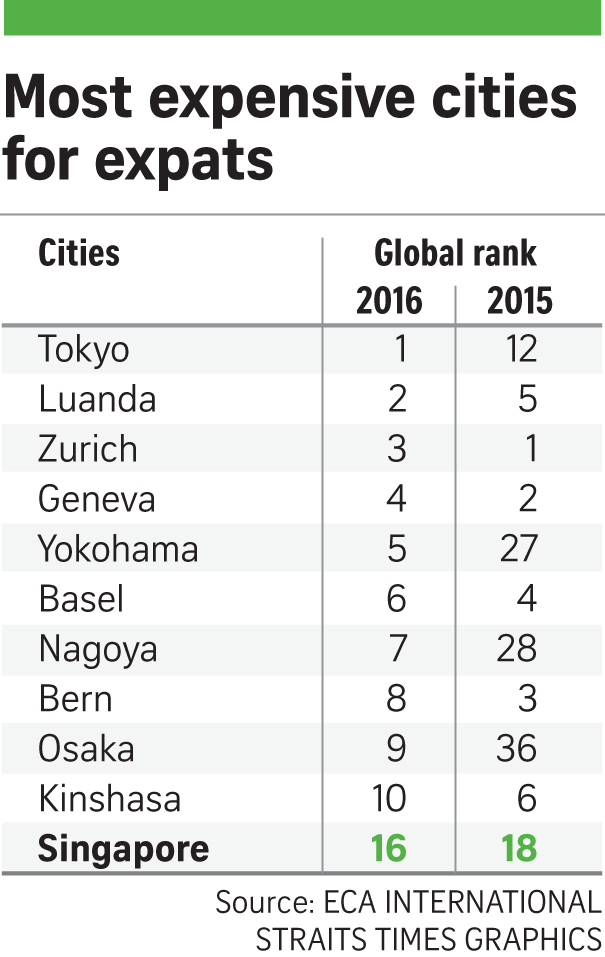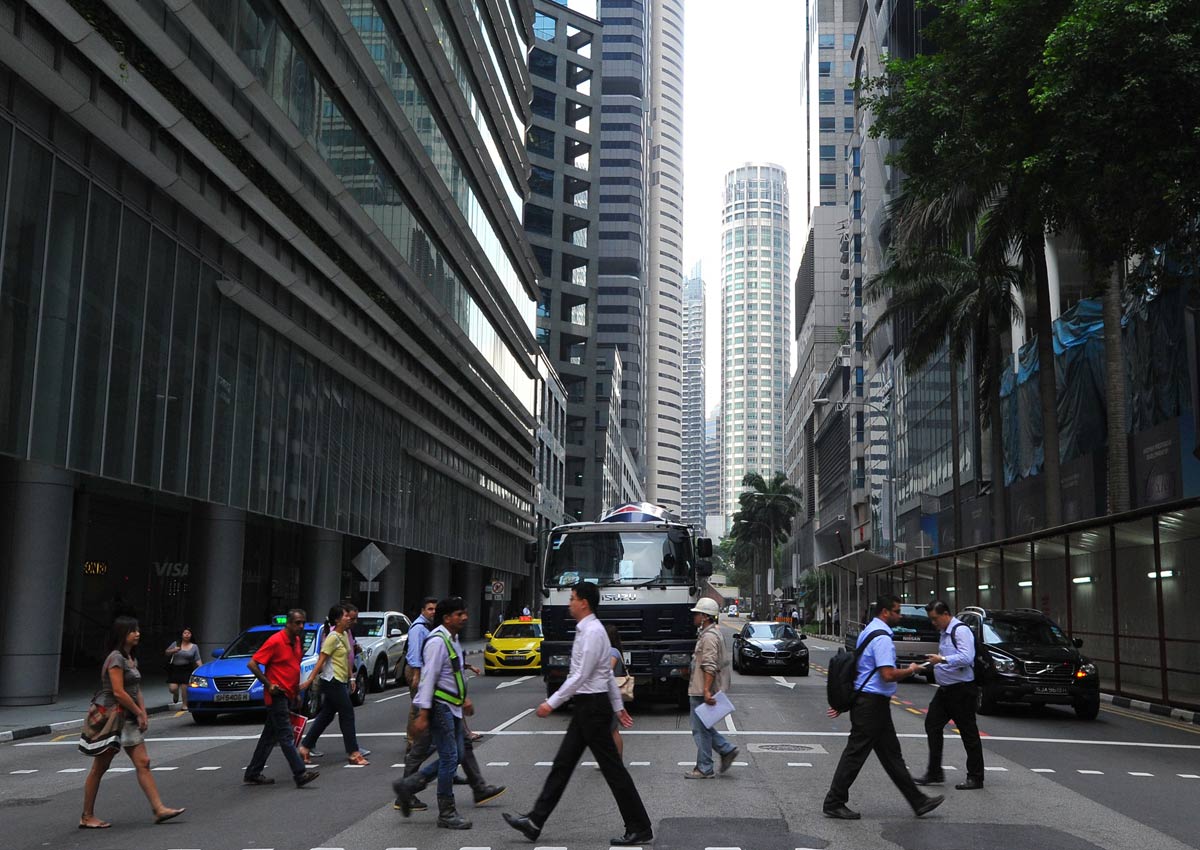Singapore is the 16th most expensive city in the world for expatriates – a rise of two places from a year ago.
This move up has brought Singapore closer to Hong Kong, which fell two places to 11th.
“Singapore’s cost of living hasn’t risen much in Singapore dollar terms,” said Mr Quane Lee, regional director for Asia at ECA International, which conducted the survey.
“Our survey recorded inflation of less than 1 per cent. The reason for Singapore’s rise… was due to the strength of the Singapore dollar, making goods and services more expensive when converted into other currencies even though they have not changed in Sing dollar terms.”
ECA International, which conducts two cost of living surveys a year, said Tokyo retook the global top spot for the first time since 2012, leapfrogging 11 places over the past year. It was followed by Luanda in Angola and Zurich.
The survey compares a basket of like-for-like consumer goods and services commonly purchased by expats in over 450 locations, but excludes costs such as rent, utilities, car purchases and school fees as these are usually covered by separate allowances.
The rankings reflect differences in inflation and exchange rate movements between the employee’s home and host countries.

“The Singapore dollar has appreciated against most major currencies in the months leading up to our survey,” Mr Lee noted.
“Despite low price rises, the impact of the stronger currency means that where companies provide cost of living allowances to executives assigned to Singapore, these will likely need to be raised to ensure that purchasing power is maintained.”
Singapore has continued to rise in the global rankings. It was No. 33 in 2011. In Asia, it is the 10th costliest, down from eighth last year.
Hong Kong’s ranking has also generally risen. It was No. 60 in 2011.
In Asia, it is at No. 5, with only Japanese cities ranking higher.
The relative strength of the yen in the survey period pushed all Japanese cities above Hong Kong in the rankings, ECA said.
Mr Lee added: “For companies bringing talent into Japan, the cost will increase as higher allowances are required to maintain purchasing power.
“On the other hand, companies sending employees out of Japan can pay lower allowances and still maintain their standard of living.”
A weaker pound after Brexit pushed London out of the top 100 costliest cities for the first time since ECA’s survey began in 2004.
“The weakened pound means that UK businesses are paying more when sending staff overseas, although it is cheaper to bring staff to the UK,” said Mr Steven Kilfedder, production manager at ECA International. “London is now cheaper than Paris, Berlin and Brussels, thanks to the weak pound.”
gleong@sph.com.sg

This article was first published on December 15, 2016.
Get a copy of The Straits Times or go to straitstimes.com for more stories.






